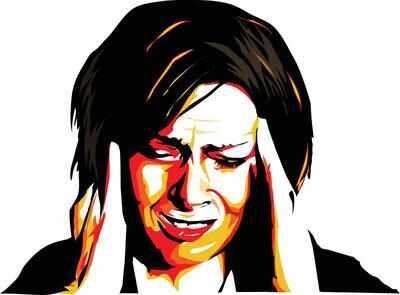
Nagpur: If your blood pressure is slightly above the standard normal values of 120/80 and you have no further health complications, cardiologists have good news for you. There is no need to take medicines as non-pharmacological treatment can manage the slight increase in blood pressure, especially in healthy young adults.
Heart specialists from across the country are in Nagpur for two-day ‘Best of Cardiology Annual Conference 2019’ that began on Saturday. According to them, the international health associations have changed the parameters of hypertension to focus on young individuals.
“Looking at the seriousness of the hypertension spreading in younger age groups, many global heart associations have introduced latest guidelines in the last two years. According to them, ideal Blood Pressure (BP) value should be below 120/80. Systolic blood pressure from 120-129 used to be considered as normal earlier. But now, it is considered as elevated BP,” said Dr Surendra Deora from AIIMS, Jodhpur.
Dr Deora further stated that the slight increase in BP values could be a sign of hypertension in future. The doctors have been asked to suggest non-pharmacological treatment to such patients. “You can bring the BP to normal by following some lifestyle modifications,” he said.
Preventive Cardiologist Dr Prashant Advani from Raipur said that lifestyle modifications can bring positive changes but people hardly follow them. “Latest guidelines to manage hypertension are framed with an aim to alert and aware young adults. They should take clue from the slight increase in BP and act on it seriously to avoid further complications,” he said.
International organizations like American College of Cardiology (ACC) American Heart Association (AHA), European Society of Cardiology (ESC) and the European Society of Hypertension (ESH) have introduced latest guidelines of the management of hypertension (HTN) that were shared during the first two sessions of the conference.
On Sunday, the experts will discuss heart failure, deep venous thrombosis (DVT) and pulmonary arterial hypertension (PAH) and Drugs in Cardiology etc.
Heart specialists from across the country are in Nagpur for two-day ‘Best of Cardiology Annual Conference 2019’ that began on Saturday. According to them, the international health associations have changed the parameters of hypertension to focus on young individuals.
“Looking at the seriousness of the hypertension spreading in younger age groups, many global heart associations have introduced latest guidelines in the last two years. According to them, ideal Blood Pressure (BP) value should be below 120/80. Systolic blood pressure from 120-129 used to be considered as normal earlier. But now, it is considered as elevated BP,” said Dr Surendra Deora from AIIMS, Jodhpur.
Dr Deora further stated that the slight increase in BP values could be a sign of hypertension in future. The doctors have been asked to suggest non-pharmacological treatment to such patients. “You can bring the BP to normal by following some lifestyle modifications,” he said.
Preventive Cardiologist Dr Prashant Advani from Raipur said that lifestyle modifications can bring positive changes but people hardly follow them. “Latest guidelines to manage hypertension are framed with an aim to alert and aware young adults. They should take clue from the slight increase in BP and act on it seriously to avoid further complications,” he said.
International organizations like American College of Cardiology (ACC) American Heart Association (AHA), European Society of Cardiology (ESC) and the European Society of Hypertension (ESH) have introduced latest guidelines of the management of hypertension (HTN) that were shared during the first two sessions of the conference.
On Sunday, the experts will discuss heart failure, deep venous thrombosis (DVT) and pulmonary arterial hypertension (PAH) and Drugs in Cardiology etc.
World Cup 2019
Trending Topics
LATEST VIDEOS
More from TOI
Navbharat Times
Featured Today in Travel
Quick Links
Lok Sabha Election Schedule 2019Lok Sabha Election NewsDelhi Capitals teamMI team 2019Rajasthan Royals 2019RCB team 2019Maharashtra Lok Sabha ConstituenciesBJP Candidate ListBJP List 2019 TamilnaduShiv Sena List 2019AP BJP List 2019Mamata BanerjeeBJP List 2019 MaharashtraPriyanka GandhiBJP List 2019 KarnatakaAMMK Candidate List 2019BJP List 2019 WBLok Sabha Elections in Tamil NaduBSP List 2019 UPNews in TamilLok Sabha Poll 2019Satta Matka 2018PM ModiMahagathbandhanNagpur BJP Candidate ListChandrababu NaiduTamil Nadu ElectionsUrmila MatondkarNews in TeluguMadras High CourtTejashwi YadavArvind KejriwalTejasvi SuryaPawan KalyanArvind KejriwalYogi AdityanathJaya PradaSatta King 2019Srinagar encounter
Get the app







